Energy transition knows no borders - European municipalities work together
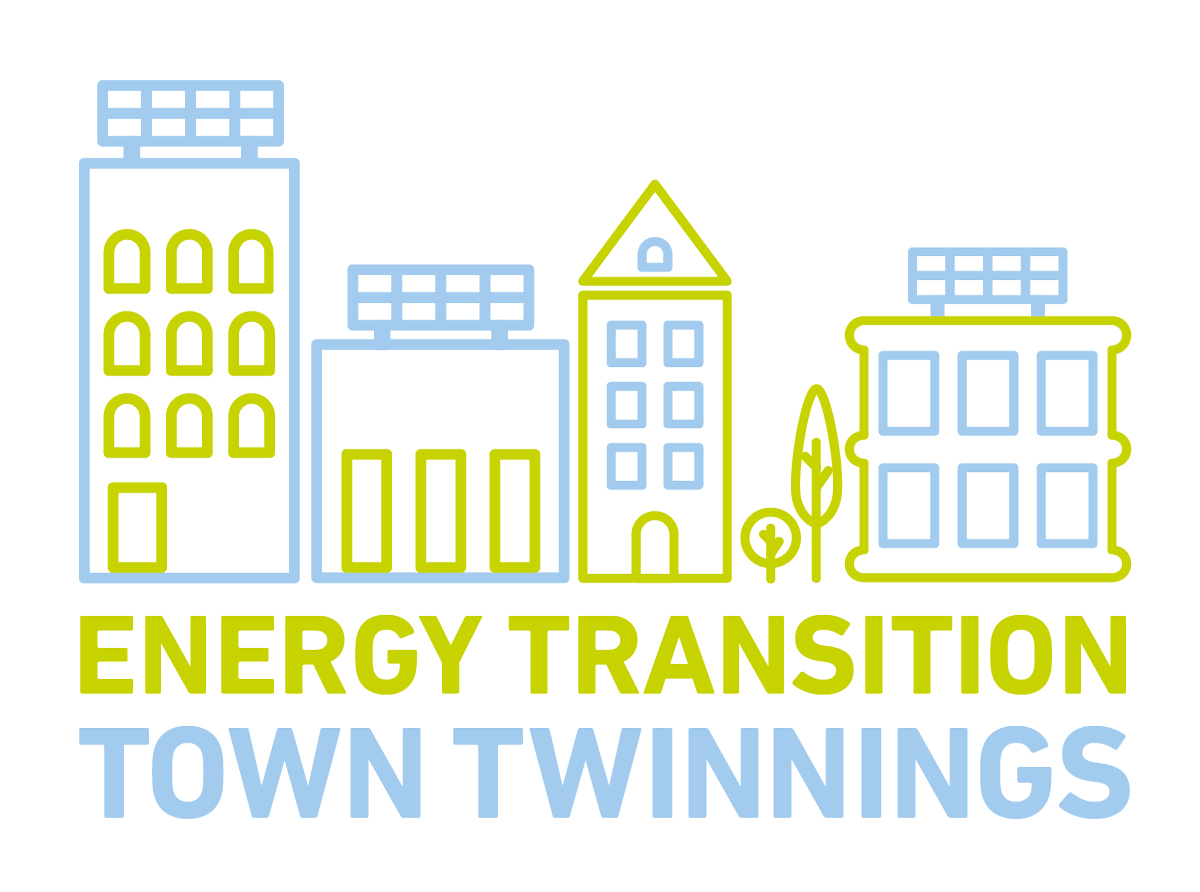 Berlin, 28th October 2024 - Europe consists of more than the EU and its neighbouring countries –those are the municipalities and their citizens that shape Europe. Despite regional differences, they share goals and challenges. As part of our "Energy Transition Town Twinnings" project, funded by the Federal Foreign Office, the Renewable Energy Agency (AEE) and the Berlin Governance Platform (BGP) are pleased to announce the selection of municipalities that want to establish new partnerships and work together on the topic of the energy transition.
Berlin, 28th October 2024 - Europe consists of more than the EU and its neighbouring countries –those are the municipalities and their citizens that shape Europe. Despite regional differences, they share goals and challenges. As part of our "Energy Transition Town Twinnings" project, funded by the Federal Foreign Office, the Renewable Energy Agency (AEE) and the Berlin Governance Platform (BGP) are pleased to announce the selection of municipalities that want to establish new partnerships and work together on the topic of the energy transition.
Over the next year and a half, the four twin towns from Germany, Ukraine, Bosnia-Herzegovina and the Republic of Moldova - Stuttgart/Bălți, Greifswald/Goražde, Düsseldorf/Czernowitz and Hoyerswerda/Novovolynsk - will jointly embark on the path of the energy transition. Together, they will meet with external experts and the project staff from AEE and BGP digitally and in person to discuss common goals, reflect on how to overcome challenges, exchange on the solutions for a successful decarbonisation and improved energy efficiency in their municipalities, and learn from and with each other.
"The ‘Energy Transition Town Twinnings’ project offers a wonderful opportunity to connect municipalities across Europe," says Dr Robert Brandt, AEE Managing Director. "Renewable energies are a great opportunity for society. They strengthen the democratisation of energy supply at a municipal level and create new economic foundations for the communities.” Daphne Büllesbach, Managing Director of BGP, emphasises the importance for citizens of the twin towns and beyond: “The ‘Energy Transition Town Twinnings 3.0’ project creates a common learning place that connects people across borders and is dedicated to the common Herculean task of a socially and ecologically successful energy transition, from trans-national to municipal.”
Stuttgart – Bălți
Thanks to the project, Stuttgart and Bălți from the Republic of Moldova have established a new energy partnership. Stuttgart, the state capital of Baden-Württemberg, has over 633,500 inhabitants and features a special topography in a basin location between wooded hills and the adjacent Neckar valley. Stuttgart is an important economic location, influenced by production and technology, and is one of the pioneering municipalities in Germany in the area of climate protection and energy efficiency. For example, the implementation of municipal heat planning was already decided in December 2023, thus initiating another major step towards climate-friendly supply. "A diverse network allows us to recognise other points of view, broadens our horizons and makes us more resilient," says Andreas Neft, Head of the Office for Environmental Protection, State Capital of Stuttgart. "Only together as a society can we take the path to a sustainable and climate-neutral future."
The municipality of Bălți, also called "the Northern Capital", is the second largest administrative unit of the Republic of Moldova in terms of area and population – an industrial, commercial, educational and cultural centre in the Northern Development Region. The city administration of 89,356 residents has considerable experience in implementing cross-border and trans-national projects. With over 400 public buildings, climate-friendly renovation and energy efficiency play a major role in Bălți. "We look forward to building trans-national partnerships to benefit from the exchange of experience and best practices and to study innovative technologies in the field of energy efficiency and share our findings," said Dan Moraru, Head of the External Relations and Investment Department of Bălți City Hall.
Goražde – Greifswald
Another new and promising town twinning now links Goražde from Bosnia and Herzegovina and Greifswald. The town of Goražde is located in the south-eastern part of Bosnia and Herzegovina in the canton of Bosnia-Podrinje. The former industrial town, with its 20,000 inhabitants, is the canton’s administrative, political, economic and cultural. The pleasant climate, fertile soil, rich forests and the good geographical and topographical location of the town on the Drina River are ideal for attracting companies as well as tourism. Asima Džambegović, Goražde's Head of the Local Economic Development Office said: "We look forward to acquiring new knowledge in the field of energy efficiency, exchanging experiences with other cities facing similar challenges in the field of energy transition and finding opportunities that offer financial support in overcoming these challenges of the energy transition process."
The university and commercial city of Greifswald, with its almost 60,000 inhabitants, is located in the north of Mecklenburg-Western Pomerania at the mouth of the Ryck River in the Danish Wieck, part of the Greifswald Bodden, a bay of the Baltic Sea. The municipality currently has the largest solar thermal plant in Germany, research is being carried out into green ammonia and most buses run on biogas. The further decarbonisation of the heat supply posed a particular challenge. This affects parts of the 95-kilometre-long district heating network and the households that are not connected. "We are delighted to be working together with Goražde in the ‘Energy Transition Town Twinnings 3.0‘ project on a climate-neutral future in Europe, to learn from each other and to make new friendly contacts," says the Mayor Dr Fassbinder.
Düsseldorf – Chernivtsi
Düsseldorf and the Ukrainian municipality of Chernivtsi have been partners since March 2022 and now want to further expand this cooperation to cover the energy transition. With over 655,717 citizens in the state capital of North Rhine-Westphalia, the development of large-scale energy projects is a real challenge for Düsseldorf. "Düsseldorf has set itself the goal of becoming climate-neutral by 2035. The exchange with other municipalities can provide important insights here," explains Düsseldorf's Mayor, Dr Stephan Keller. "In addition, it is particularly important to us to support our Ukrainian twin city of Chernivtsi. Due to the full-scale Russian invasion, power outages are occurring throughout Ukraine. Against this background, the question of energy efficiency in particular is becoming enormously urgent."
Chernivtsi is located in the south-west of Ukraine, 40 km from the border with Romania, in the foothills of the Ukrainian Carpathians, through which the Prut River flows. 270,578 people live in Chernivtsi. The municipality's solar potential is of particular importance in the expansion of renewables. At the same time, the city wants to increase energy efficiency and reduce dependence on traditional energy sources. "Participating with the German sister city Düsseldorf, Germany, in the third phase of the ’Energy Transition Town Twinnings’ project, funded by the Federal Foreign Office, will allow us to continue our cooperation with an emphasis on the energy transition and renewable energy" says Director of the Department of Socio-Economic Development and Strategic Planning of the Chernivtsi City Council, Serhii Bostan. "A particularly important topic for our community at the moment."
Novovolynsk – Hoyerswerda
The “Energy Transition Town Twinnings” project is creating a new town twinning between a Ukrainian and a German municipality – in this case Novovolynsk and Hoyerswerda. Novovolynsk in north-western Ukraine was an important centre of coal mining in the region and has 58,000 inhabitants. A crucial step towards the energy transition was the conversion of the boilers to biomass instead of gas. "Novovolynsk is pleased to be part of the project and to have the opportunity to establish cooperation with other municipalities facing similar energy transition challenges" says Borys Karpus, the city's Mayor. "We are committed to sharing knowledge, experience and joint development for a sustainable future."
Hoyerswerda is located in the middle of the Lusatian Lake District - just 60 kilometres north-east of the Saxon state capital Dresden. The city's almost 70,000 citizens will be direct witnesses to Germany's phase-out of coal by 2038. The well-known "Schwarze Pumpe" power plant, for example, is part of the heat supply for Hoyerswerda's Neustadt district. But the sewage sludge incineration facility in the "Schwarze Pumpe" power plant will also be affected. "The city of Hoyerswerda welcomes participation in the Energy Transition Town Twinnings 3.0 project. In addition to the goals of the transformation, the exchange with other municipalities also promotes social discourse," emphasises Mayor Torsten Ruban-Zeh. "By looking at each other from the outside, we are able to jointly develop solutions to similar challenges, learn from each other and possibly work together in the long-term."
To mark the start of the official cooperation in the “Energy Transition Town Twinnings” project, delegations from the participating municipalities will meet for the kick-off conference in Berlin on 19th and 20th of November with ambassadors from Ukraine, the Republic of Moldova and Bosnia and Herzegovina, as well as other invited guests and experts in the field of energy transition and municipal cooperation. Journalists interested in the event are welcome to contact us directly.
In recent years, the Berlin Governance Platform and the Agency for Renewable Energies have supported German and European town-twinning projects in their transformation in two projects funded by the Federal Foreign Office.
Further information and photos of the town-twinning projects can be found here.
Contact:
Renewable Energy Agency
Project Manager
Anika Schwalbe
Tel.: +49 (0)30 / 200 535 52
E-mail: a.schwalbe@unendlich-viel-energie.de
Berlin Governance Platform gGmbH
Project Manager
Aleksandra Kotur
Tel.: +49 (0)176 341 656 67
E-mail: akotur@governance-platform.org


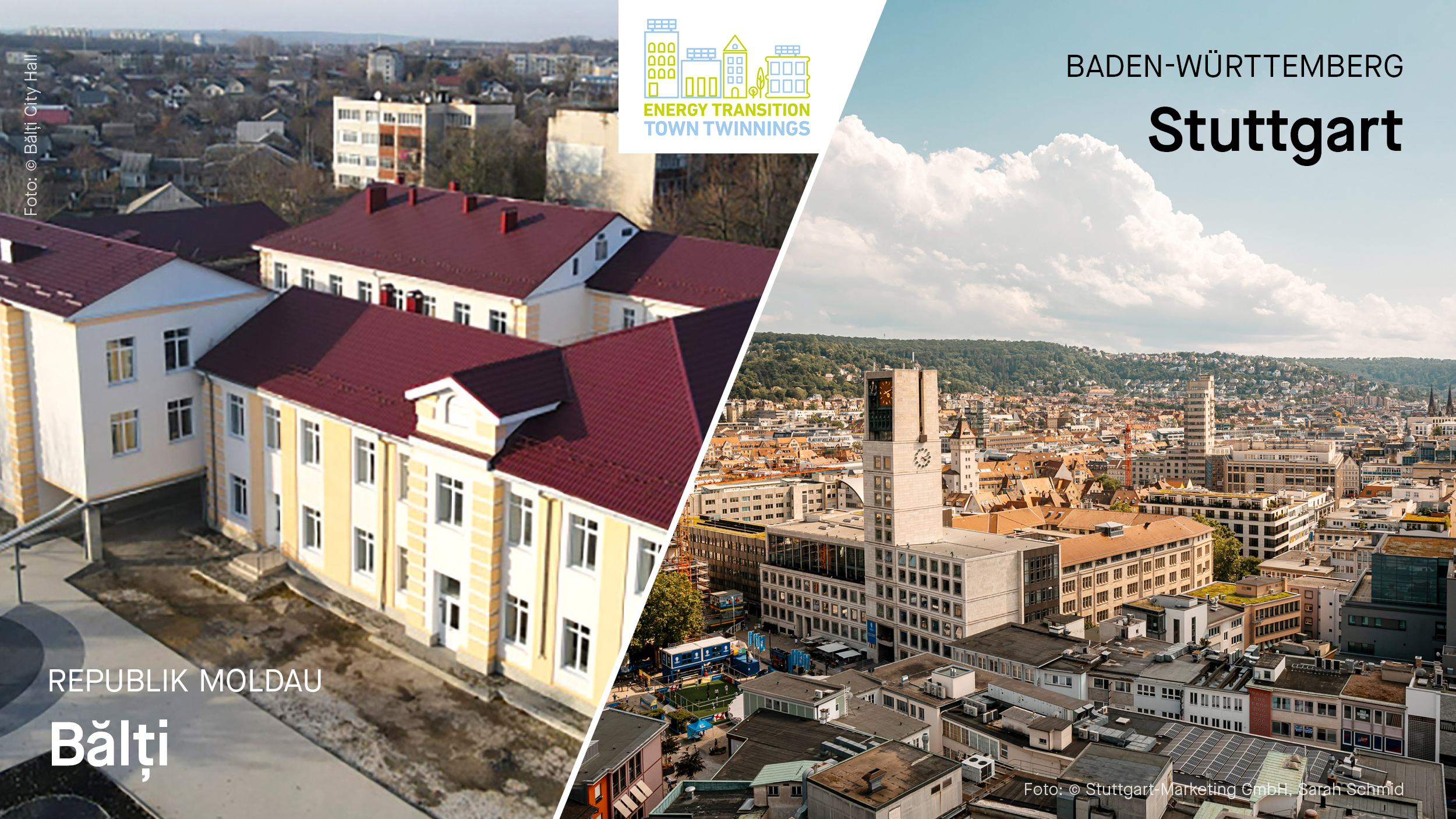
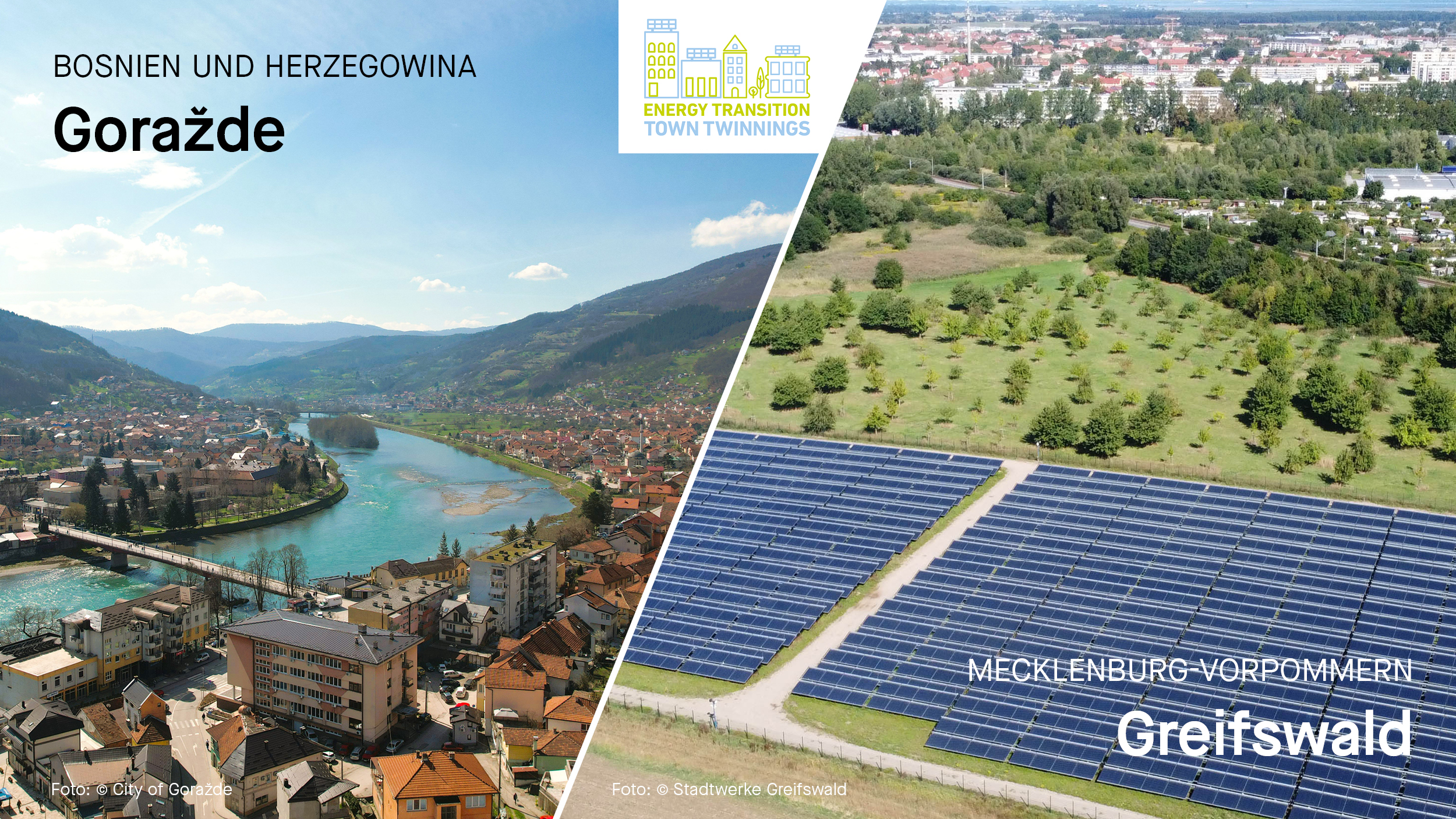
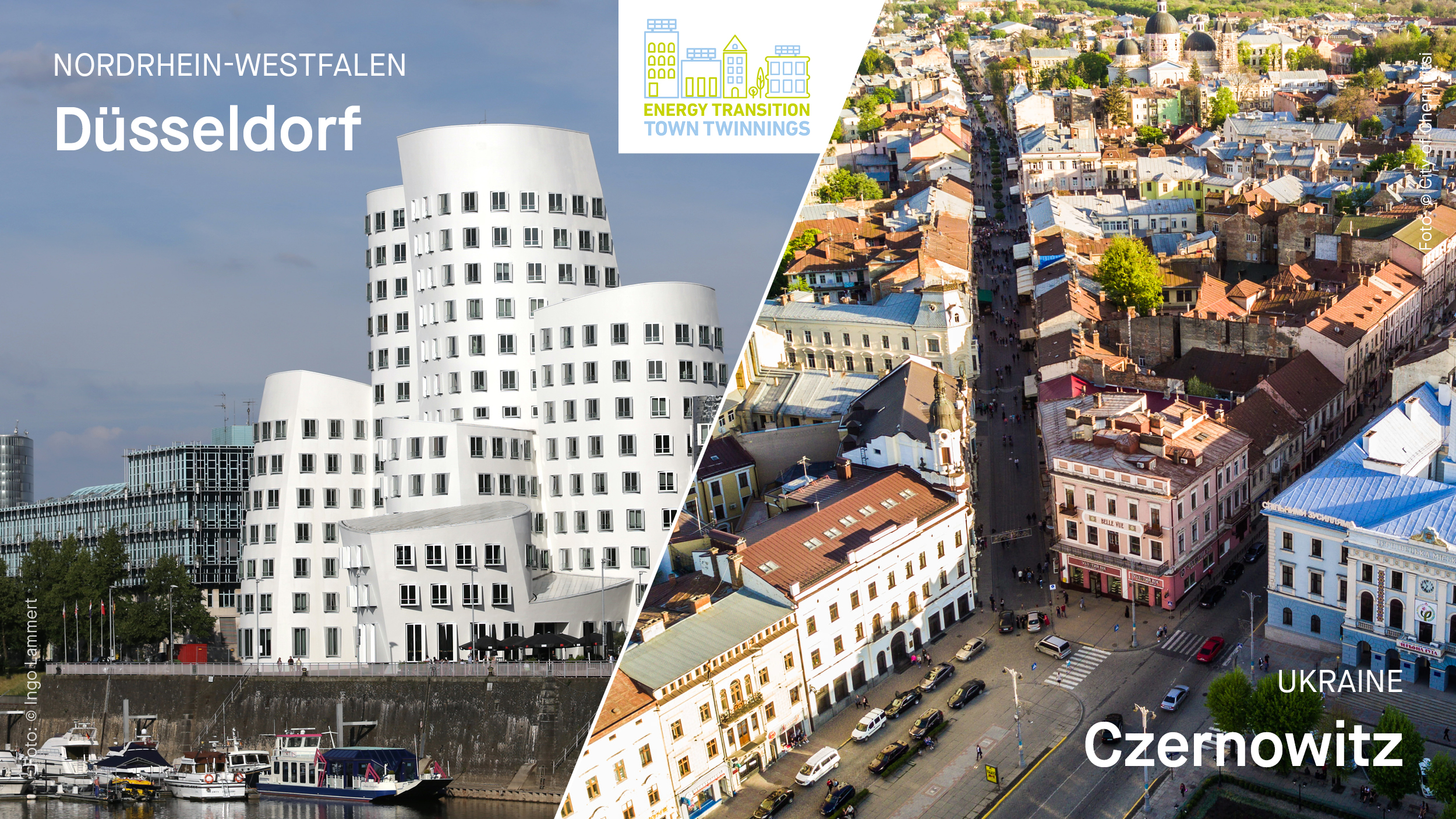
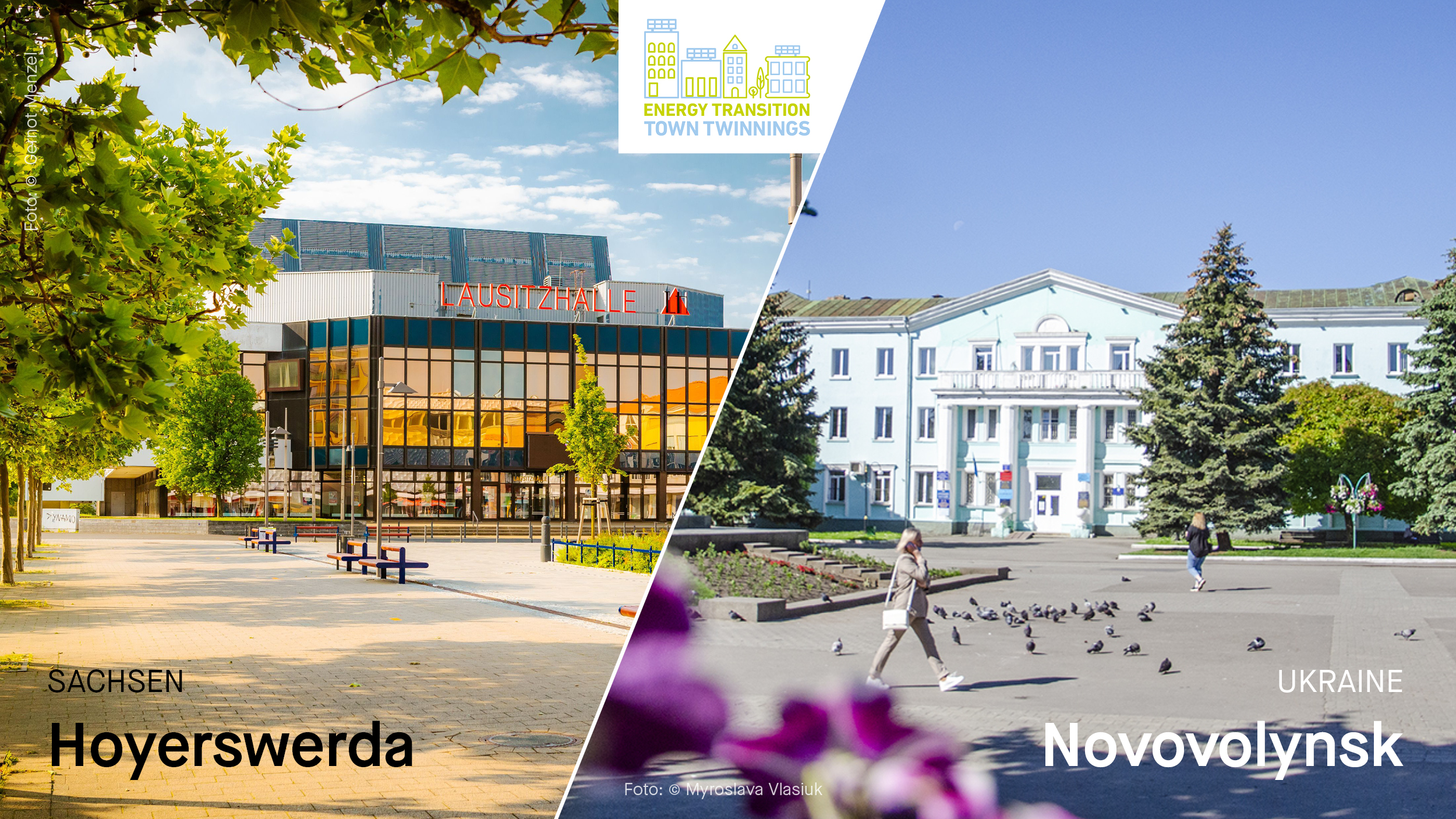

Social Media